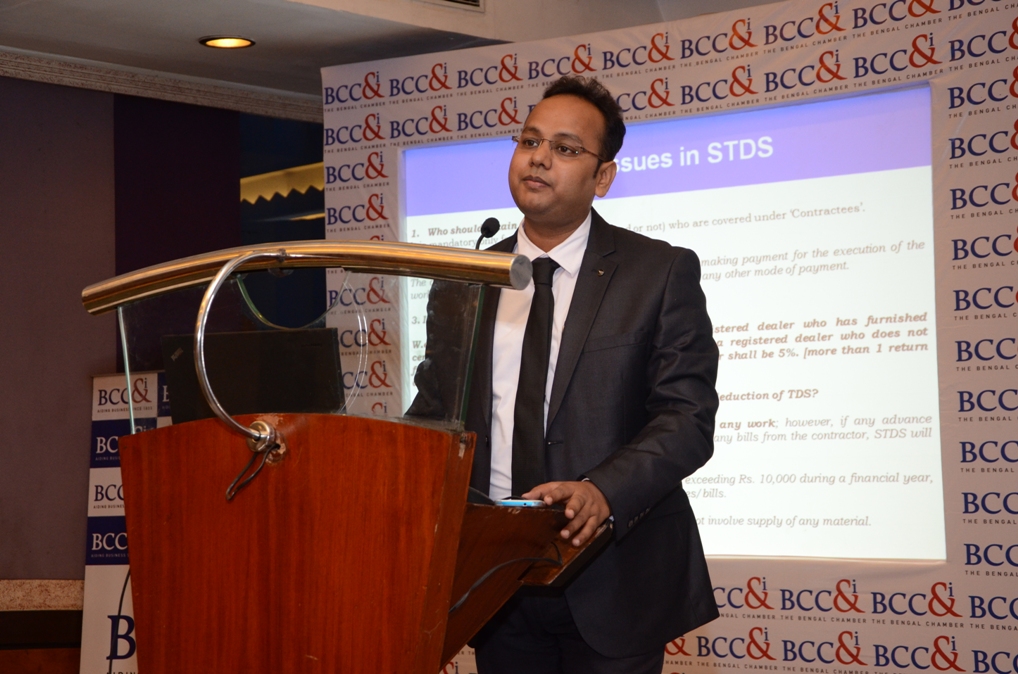The question which has arisen many a times is that how TDS Provisions can be applied where Payee is not known as TDS is deducted and deposited in payee’s name?
At the year-end on accrual basis and prudence, certain expenses have to be accounted for in the relevant financial year on “estimated basis” to bring true and fair financial picture. As the payee name or amount in some cases is not known at the time of provisions, how can TDS be deducted?
Section 4(1) provides that income-tax is a charge on total income of a previous year of a person. As per section 4(2), such income tax shall be paid by way of advance tax or TDS. Further, section 190(1) provides that the tax on total income shall be inter-alia payable by deduction or collection at source in accordance with the provisions of Chapter XVII. Section 190(2) makes it clear that the provisions of section 190(1) would not prejudice the charge of tax under the provisions of Section4(1) of the Act which signifies that the deduction or collection of tax is only a modeof payment or recovery of tax payable by a person on his total income of the previous year. As per the scheme of TDS under Chapter XVII-B Section 199, the credit for the TDS is to be given to the deductee. Thus, the identification of the person from whose account income tax was deducted at source is a prerequisite condition so as to make the provision for Chapter XVII-B workable.
Tax deducted at source is considered to be tax paid on behalf of the person from whose income the deduction was made and, therefore, the credit for the same is to be given to such person. When the payee is not identifiable, to whose account the credit for such TDS is to be given. Section 203(1) lays down that for all tax deductions at source, the tax deductor has to furnish a certificate to the person to whose account such creditis to be given. Therefore, when the tax deductor cannot ascertain the payee who is the beneficiary of a credit of tax deduction at source, the mechanism of Chapter XVII-B cannot be put into service.
However, contrary judgements are prevalent in the cases where it is laid down that the scheme of TDS provisions applies not only to the amount paid, which bears the character of “income” but also to gross sums, the whole of which may not be income or profit in India in the hands of the recipient. Section 40(a) (ia) of the Act read with Section 194J Explanation(C), requires that tax has to be deducted at source when amount is paid or credited to the account of payee whichever is earlier. The Hon’ble High Court held that the existence or absence of entries in the books of accounts is not decisive or conclusive factor in deciding the right of the assessee claiming deduction and set aside the ITAT’s order to the contrary. However, in the light of the above judgements and provisions, taxpayers may have to follow certain steps in the matter which are as follows –
1. No TDS for general provisional entries which are made in respect of various expenses on an estimated basis. For example Bonus on Salaries where the Bonus may be variable.
2. On the first day of the new FY, the provisional entries need to be reversed.
3. Once the bills or invoices are received in the next year or the payment becomes dues, TDS is applicable.
4. TDS provisions fail to apply only when the identity of the deductee is not known precisely and/or the quantum of the amount payable is also unascertainable. It should be an ad hoc provision.






You mentioned in the example of Bonus on Salaries that TDS is not to be made in view of estimation and its variable nature but it is not so because of the reason Section 192(1) prescribes that TDS on Bonus/Salaries (as Bonus is also taxable under the head “Income from Salaries”), TDS is to be made at the time of payment only.